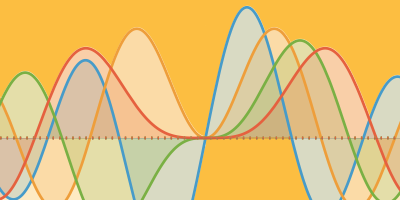Introducing Wolfram U Computational Thinking Certifications
Wolfram U certifications have been hugely popular since their introduction with over one thousand awarded in 2020 and many more again this year. Students and professionals around the world have been growing their skills and demonstrating their proficiency in a wide range of topics, including data science, machine learning and data visualization.
We’re excited to be expanding our range of courses to include what we consider to be the critical skill of the twenty-first century and beyond: Computational Thinking.
What Is Computational Thinking?
Wolfram’s Computational Thinking Process (CTP) is a problem-solving framework that starts with real-world problems and works back to relevant concepts and then tools. The focus is on thinking, including conceptualizing the problem and validating the solution. Computational thinking empowers people to have more awareness, understanding and control over the information and data that powers our modern physical, social, intellectual and cultural worlds.
Beyond mathematics, statistics, data science or programming—although those skills have significant roles within computational thinking—our Computational Thinking courses will teach you how and when to use everyday computational tools to explore problems and develop solutions.
Whether you’re a student writing your first assignment or a manager of a Financial Times Stock Exchange 100 company looking to improve your team’s productivity, using the data available to fully assess and understand a situation to make effective decisions is a key skill in the AI age.

Why Get Certified?
While these skills are important now, they’re becoming even more essential every day, but the world has been slow to react. Beyond basic statistics and coding lessons, people leaving school do not have the computational thinking skills required in the real world.
Wolfram-certified Computational Thinking courses provide an easy way to learn the skills you’ll need and then demonstrate your proficiency. Whether you’re preparing for college, a promotion or an entirely new career, a Computational Thinking certification helps bolster your credentials and enables you to stand out from the crowd.
After learning the materials and passing the assessment, it’s easy to add your new certification to your LinkedIn profile and show employers, professors, clients and other connections everything you bring to the table.
What Courses Are Available?
In our first set of Computational Thinking courses, we have four interactive, self-study modules. Each one is designed to focus on specific computational thinking skills, such as dealing with messy real-world data, mitigating bias and presenting data.
How Happy Are People in My Country?

How can you measure things like emotion, pain and literacy? Dealing with subjective data like this is a key part of data science in the real world; find out how it’s done in this short interactive course.
Learn More
Cause or Correlation?

“People who took this course earn more in the future!” Learn to be wary of media claims of how one thing causes another, and have fun finding your own odd correlations.Learn More
Does Gender Help with Your Maths Score?

Comparing two datasets is a first step in any data science course. In this short course, you will analyze local and national datasets and find out how to present your findings.Learn More
Can I Spot a Cheat?

Using real data, how do you define when to raise the alarm for possible fraud or bias? How do insurance or credit card companies know when to investigate further?Learn More
We’re pleased to be able to offer these new pathways to real academic and professional growth and hope you enjoy getting your Computational Thinking certifications!
| Prepare for the AI age and stand out from the crowd with our Computational Thinking certifications. |



Comments